|
Click here to view this email in your browser.
|
 |
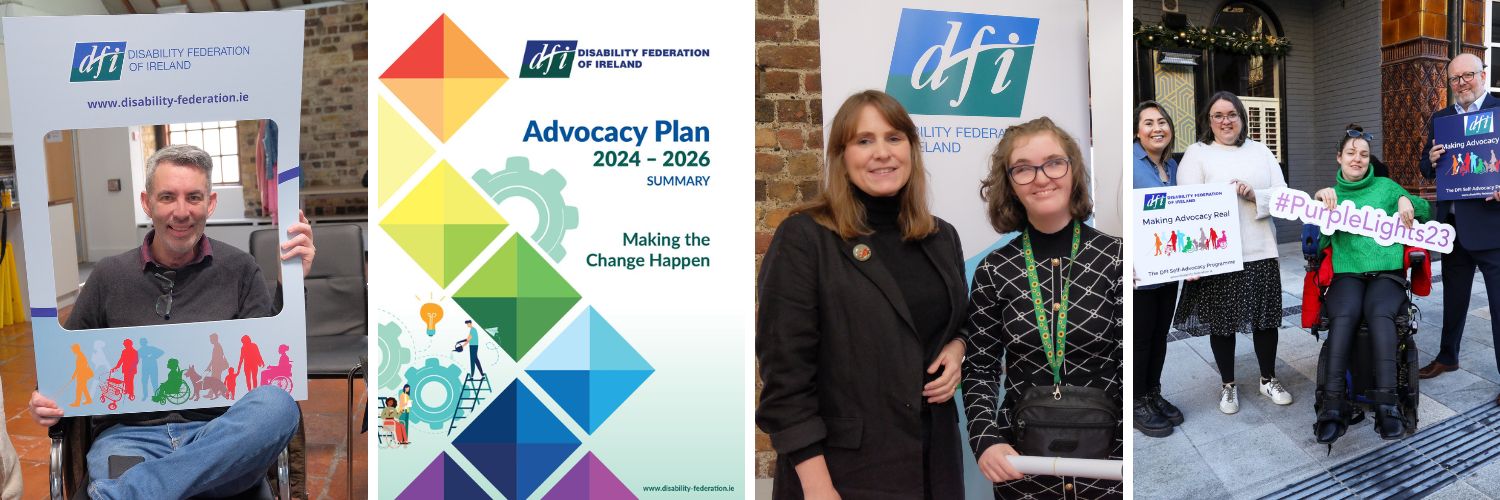 |
|
|
|
December Update
Welcome to our December Member update.
We share our reaction to the publication of the Disability Action Plan.
We added our voice to a coalition of voluntary bodies to express our concern at the delay in the WRC wage deal.
We share our new three year Advocacy Plan – Making it Happen and some information on the tender process for our new Membership Survey which will be in place for 2024.
We have some highlights from our Making Advocacy Real Event in Cork for International Day of Persons with Disabilities and from our last Self-Advocate Media Training session of the year.
In policy we highlight the deadlines for the Green Paper on Disability Reform and the National Disability Strategy.
In health we look at Phase Two of the Neuro-Mapping Project and share a call for participants for an EU survey on healthcare experience.
Our final podcast of the year has our full analysis of Budget 2024.
And,we have the cover reveal for Never Know Your Place, a memoir about Martin Naughton which will be published in March 2024.
Member Newsfeed
Our dedicated Member Newsfeed is now live on our home page. This is a space where we are profiling you and your events and initiatives so please email us with your stories, big or small, along with a photo, and we will include it.
Share the news!
We invite you to share this newsletter with colleagues and invite them to subscribe.
Click here for our one click subscription link.
|
|
|
|
|
|
|
|
Membership Survey 2024
DFI issues tender call to develop a Membership Survey Design
|
 |
|
To ensure we have an accurate representation of our Membership, DFI is working to develop an Annual Membership Survey, which will be applicable to all members. This will deepen our understanding of member organisations, giving us an insight into your support needs and aiding our representation and advocacy work.
We have invited Tender Submissions for suitably qualified candidates to develop a Membership Survey Design. The tender is live and has a closing date of 12 January for expressions of interest.
Click here to download the tender document and to find out more about the timeline of the survey in 2024.
|
|
|
|
|
|
|
Events and Consultations
|
|
Launch of the Disability Action Plan
|
 |
|
The long-awaited Disability Action Plan 2023-2026 was published yesterday. This is the Government’s follow-up to the Disability Capacity Review published in 2021 and follows years of underfunding in the disability sector.
We issued a statement in response to the publication and the content of the Plan. In our sttement, we acknowledge the extensive work that has gone into preparing the Action Plan and that the commitment by the Department Of Children Equality, Disability, Integaration and Youth (DCEDIY), Ministers Rabbitte and O’Gorman and the HSE to address the crisis in disability services.
DFI advocated for the Action Plan to be grounded in the UN Convention on the Rights of Persons with Disabilities, UN CRPD. In particular, for there to be a significant focus on community-based services that promote independence. The Disability Action Plan includes welcome targets in relation to Children’s Services, adult day services, personal assistance, residential services, home supports, and multi-disciplinary therapies.
However, it is disappointing that these are restricted to services which account for supports to just 7% of disabled people. For these targets to be met, the ongoing challenge of filling posts has to be a high priority.
Investment in the wider landscape of community services is essential to enable people to live independently in their communities, in line with Article 19 of the UN CRPD. We are concerned that there is insufficient focus on disability services delivered by voluntary organisations that fall outside of the traditional HSE disability services programme.
Read our statement in full here.
Click here for the Disability Action Plan.
|
|
|
|
|
|
|
Delay on WRC wage deal extremely disappointing
|
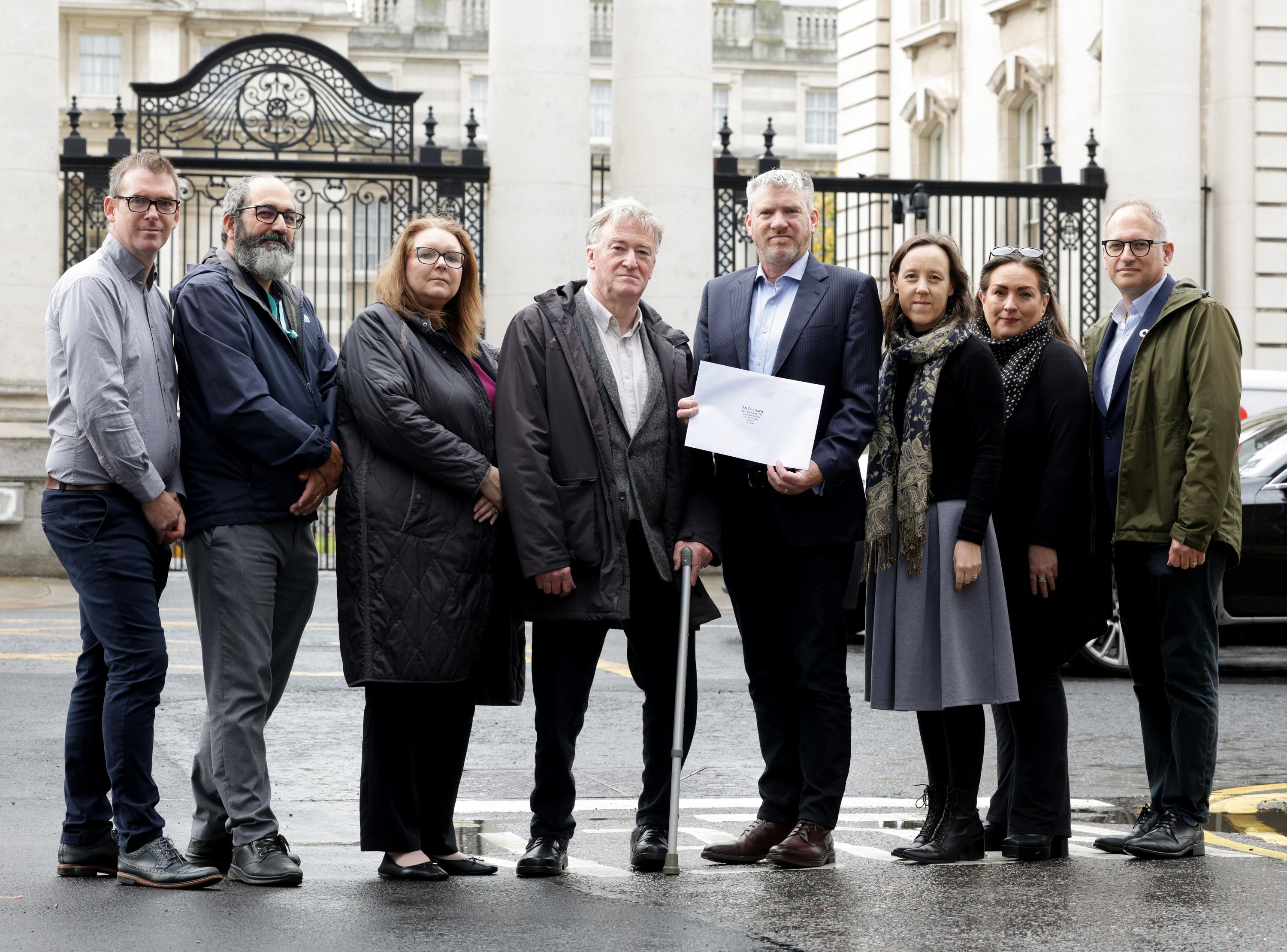 |
|
We added our voice to a Coalition of Section 39, 56 and 10 Community and Voluntary organisations, whose staff were awarded an 8% wage increase by the WRC on October 17 last, and expressed extreme disappointment that government has not yet clarified the mechanism of how funds will be provided to allow payment of the award.
Immediate clarification is needed on when money will be provided by the Department of Public Expenditure and Reform.
The delay is further impacting sustainability of services to tens of thousands of vulnerable families in areas such as physical and intellectual disability, care of children and older people, family services, addiction and homelessness.
The WRC agreement was meant to address a crisis of retention and recruitment in the sector, where staff receive between 10-20% less pay than their counterparts employed by HSE. If the WRC decision is not implemented immediately, a new public sector pay deal likely before the end of December will worsen pay disparity and make recruitment of medical, care and other staff virtually impossible.
The WRC Agreement also contained a commitment to resume discussions ‘not later than 1 December last, to ‘agree further adjustments in funding for organisations and their staff.’
This process has also been delayed and further highlights the discriminatory nature of our two-tier health and care system.
Read more here on the statement.
|
|
|
|
DFI’s SGM and EGM take place as hybrid event
|
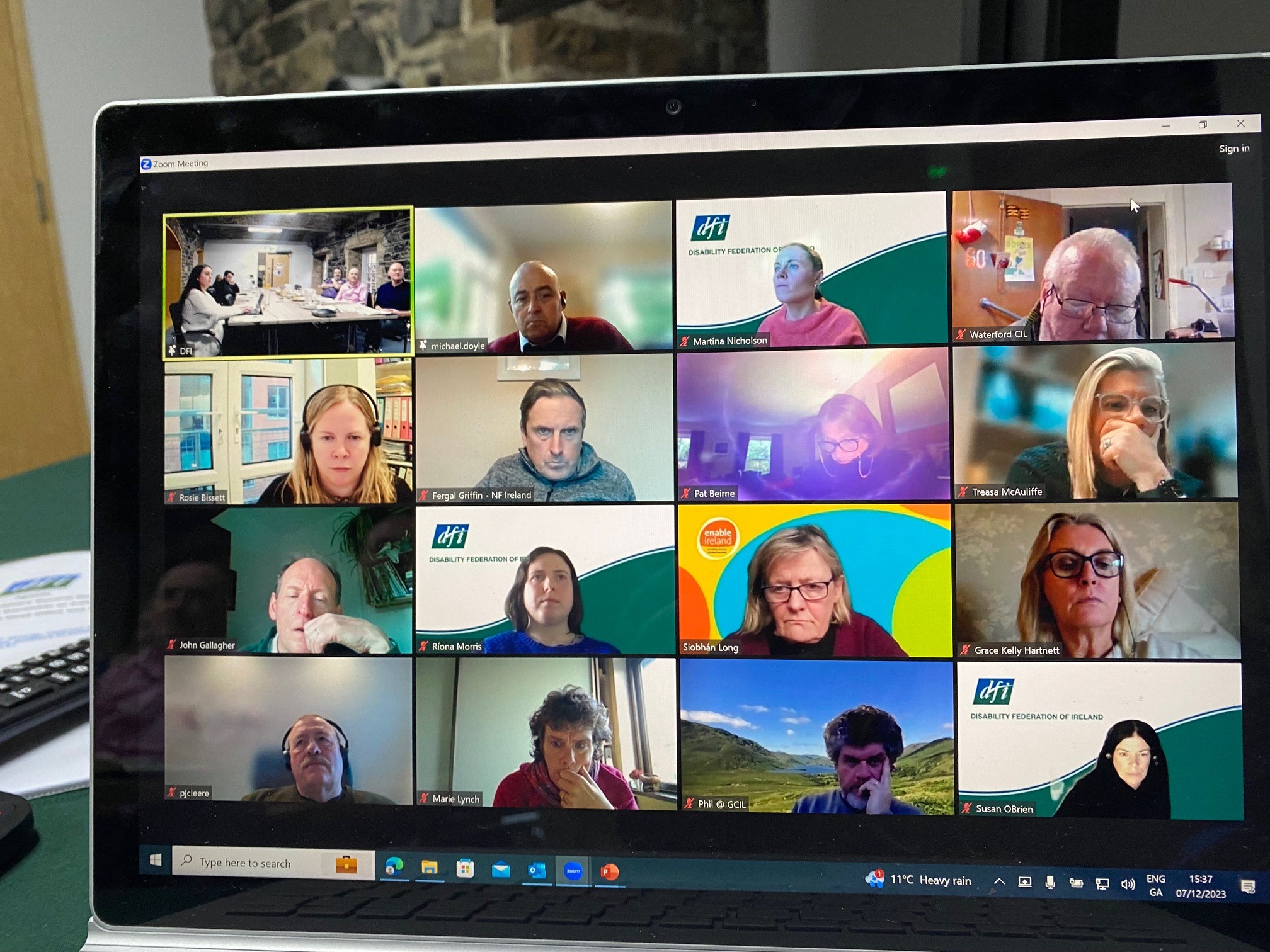 |
|
Our SGM and EGM took place as a hybrid event on 7 December last. Along with giving an update on the DFI’s Strategic Plan progress, we had a topical session.
The topical session focused on:
– Section 39 pay issue post ICTU ballot, with keynote observations from John Gallagher, Public Affairs Advisor, The Wheel.
– Findings from DFI’s recent membership survey on pay from DFI’s Ríona Morris .
– The sustainability of voluntary organisations with input from the DFI Representative on the Department of Health’s Dialogue Forum, Fran Brennan, CEO of Polio Survivors Ireland.
|
|
|
|
‘Never Know Your Place’ to be published in March 2024
|
 |
|
The O’Brien Press have shared the cover of Never Know Your Place – Memoir of a Rulebreaker ahead of its publication in March 2024.
Never Know Your Place was written by Martin Naughton with Joanna Marsden. It has a foreword by Rosaleen McDonagh, and an afterword by Niall O’Baoill.
Martin Naughton (1954–2016) was a disabled activist from Spiddal, County Galway, who lived most of his life in Baldoyle in north Dublin. Having experienced institutionalisation and fought hard for his freedom, he became a life-long advocate for the right of disabled people to live independently. Through his personal friendships with American activists, he was instrumental in spreading the Independent Living movement to Ireland, and in the mid-1990s he led the landmark political campaign for Personal Assistant services. His later achievements include founding the ‘ENIL Freedom Drive’, a biennial event which brings disabled people from Europe together in Brussels to highlight the right to Independent Living.
Joanna Marsden is a writer and independent radio documentary-maker who lives in Dún Laoghaire. She writes for publications including The Irish Times and got to know Martin when she interviewed him for a book about how life had changed for disabled people in Ireland. Her projects include making documentaries for Newstalk and RTÉ Lyric FM, and contributing to TULCA Festival of Visual Arts.
For more information keep an eye on the O’Brien Press website.
|
|
|
Actioning Self-Advocacy
|
|
|
|
|
‘Making Advocacy Real’ event takes place in Cork
|
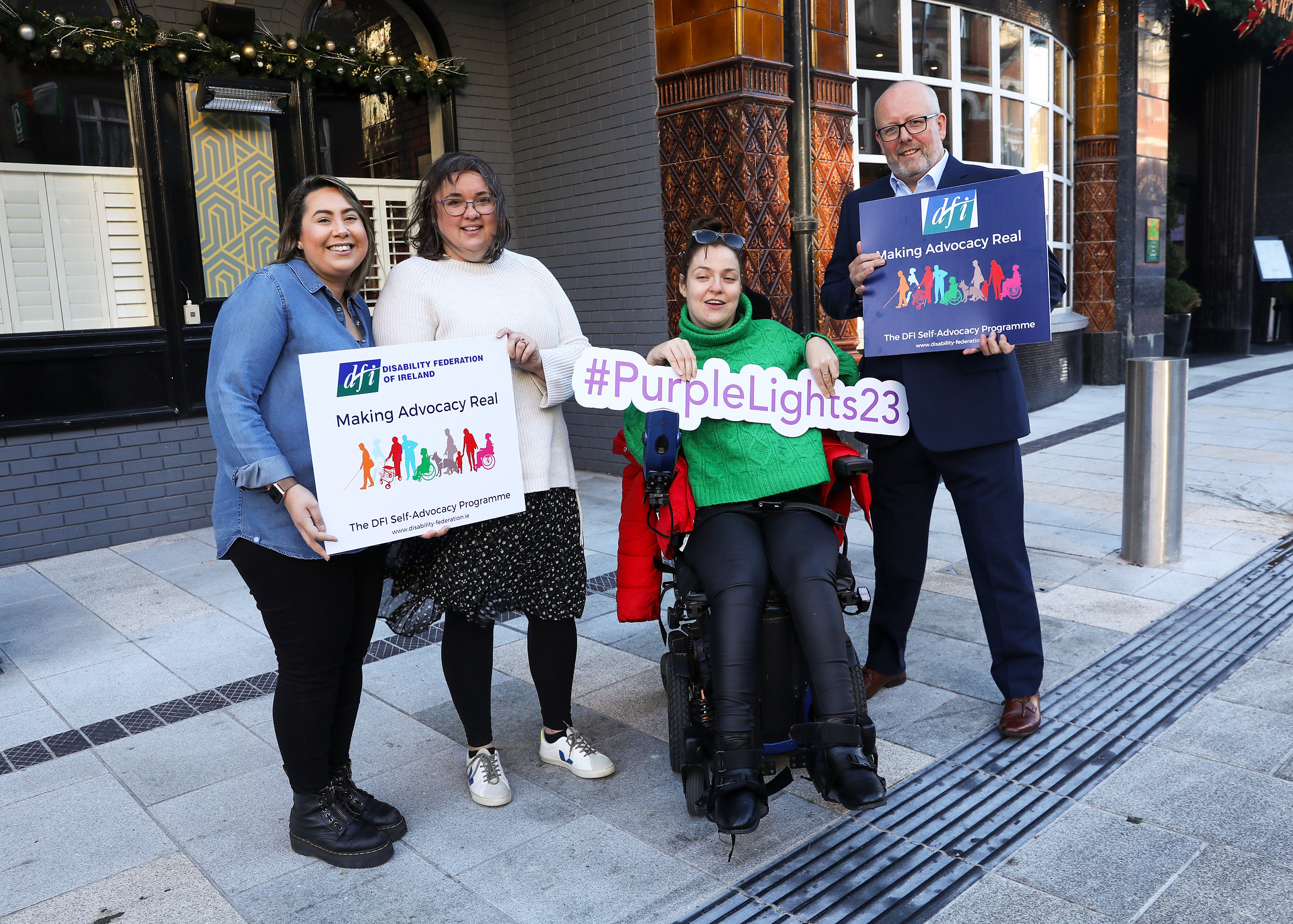 |
|
We hosted a disability self-advocacy learning event in Cork on 30 November as our flagship event ahead of International Day of Persons with Disabilities on 3 December.
The event, which took place in the Metropole Hotel, was offered by DFI in response to requests from our member organisations. It offered an opportunity for all gathered to reflect on best practice in self-advocacy and to work towards the development of a DFI Self-Advocacy Toolkit.
Speakers at the event were drawn from DFI Member Organisations and included Dr Caroline Winstanley from the Central Remedial Clinic, Joanne Nelligan from Rehab Group and Gary Brennan from the Prader Willi Syndrome Association Ireland. Master of Ceremonies for the event was Amy Begley, a disability advocate from Cork.
Speaking after the event DFI’s PJ Cleere said, “The DFI Self-Advocacy Programme is a partnership between DFI, our member organisations, key workers and self-advocates. Through this programme we are working to support our member organisations to promote, develop, and strengthen self-advocacy in their organisations. This event was another step in the journey and was underpinned by the principles in the United Nations Convention on the Rights of Persons with Disabilities. We look forward to continuing this important work with our members to develop best practice in self-advocacy programmes.”
For more on the DFI Self-Advocacy Programme click here.
Photo is by John McElroy and features speakers, MC Amy Begley and Sarah from Cork Centre for Independent Living.
|
|
|
|
DFI’s Media Training for Self-Advocates concludes for 2023
|
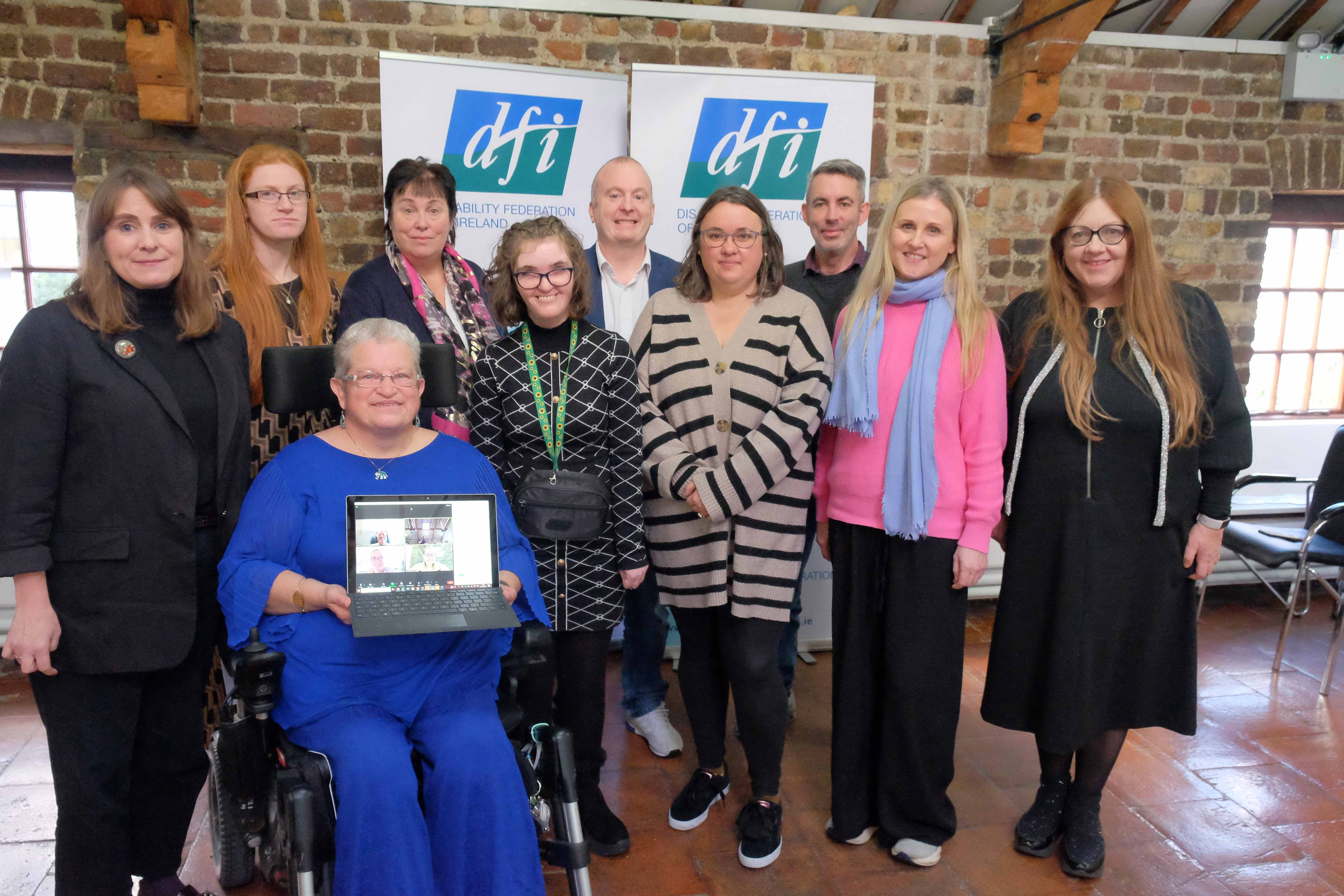 |
|
Monday 27 November saw our latest group of self-advocates gather in the DFI offices for our final media training session of 2023. Self-advocates completed the media training over four Mondays in November.
We were delighted to welcome journalist Alison O’Reilly from The Irish Examiner to present the certificates along with DFI’s Director of Advocacy and Inclusion Dr Emer Begley.
Alison offered the participants some great advice and insight into sharing their stories in the media. Emer spoke about the importance of the lived experience of self-advocates in DFI’s work.
Congratulations to the November Class of 2023 from all of us in DFI!
They are:
- Eoghan Curry
- Roisin Lenihan
- Gemma Willis
- Donna Walsh
- Claire-Ann Power
- Carolyn Akintola
- Lena Mulligan (Carolyn’s PA)
- Steven Neville
- Laura Murphy
- Dr Caroline Winstanley (staff member with CRC)
While the media training takes place under the DFI Self-Advocacy Programme, we also facilitated a number of staff members and a PA to do the training this time around so as they could be there to support self-advocates.
With thanks to our Member Organisations CRC, IWA, MDI and RehabCare, for their support of the self-advocates to do the training.
The media training was delivered by DFI’s Communications Manager Brenda Drumm. We have a waiting list in place now for the training in 2024 so if you have someone in mind whom you think the training would appeal to, please email us.
Photo is by Liam McArdle and features the November class of 2023 with Alison O’Reilly, Dr Emer Begley and Brenda Drumm.
|
|
|
Policy & Research
|
|
|
|
|
|
|
Green Paper on Disability Reform
|
 |
|
It has been a busy month regarding the Department of Social Protection’s public consultation on a Green Paper on Disability Reform. Notably the consultation deadline was extended until 15 March. DFI, like others, had advocated for this extension.
DFI staff have participated in the Department’s events in Dublin, Cork and Athlone. We also held two member discussion and consultation sessions on this topic last month – thanks so much to those who took out the time to participate. We were pleased to have a broad range of participants, and we heard the numerous concerns raised by members.
Key concerns included the lack of a UN CRPD/social model/human rights starting point, lack of detail on how it would be implemented, making employment engagement mandatory, lack of acknowledgement of ongoing structural barriers and insufficient services, inadequate understanding of Cost of Disability, and the proposed rates not being enough. We will feed all of these concerns into our submission to the consultation process.
We have also been engaging with other organisations internationally, with our sectoral colleagues in the broader disability movement, with community and voluntary and anti-poverty organisations, and with Sinn Féin and the Social Democrats, to share our concerns and analysis regarding the Green Paper.
Drop fleachtaphelan@disability-federation.ie a line to share any feedback or ask any questions on this topic, or if you’d like us to share the various policy resources we have on this and be added to our member mailing list on the Green Paper. You can read a longer update about our work so far here.
The Green Paper is a significant policy development, which proposes a number of potential changes to Ireland’s social protection approach to disability. If you haven’t yet, we’d strongly encourage all members to read up on this proposal, to make submissions, to ensure the disabled people they work with are aware of the consultation, and to support them to participate in the consultation.
Some key resources on the Green Paper
|
|
|
|
DFI brings disability concerns to the Community and Voluntary Pillar bilateral meetings
|
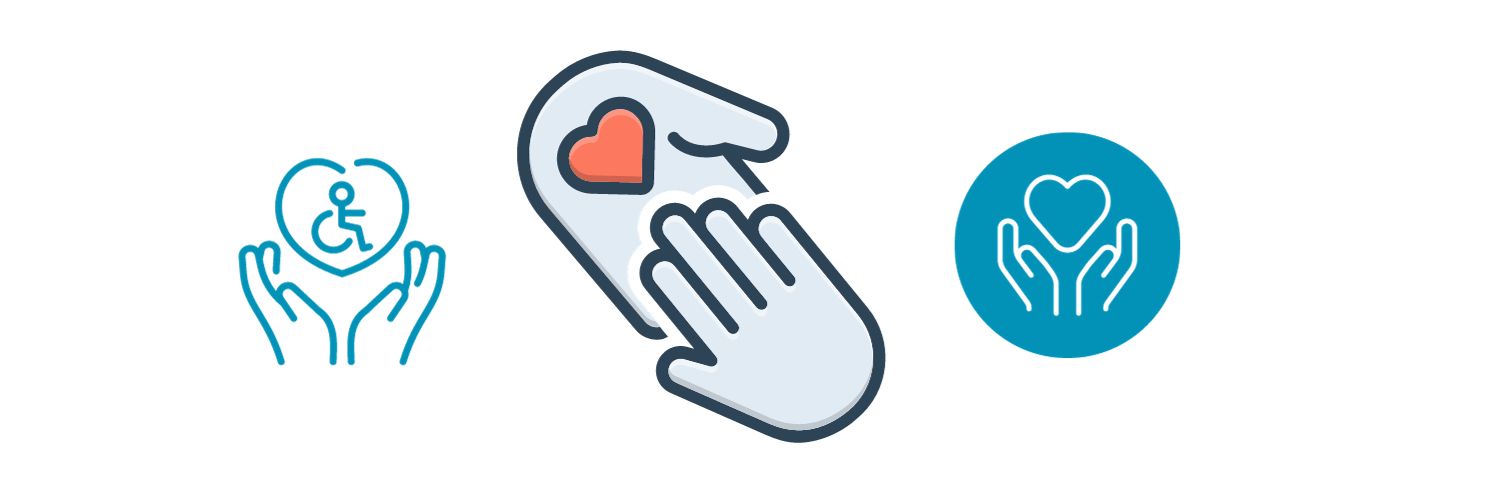 |
|
DFI is a member of the Community and Voluntary Pillar, bringing a disability voice to this grouping of 17 civil society organisations, as nominated by the government historically. Through the pillar we participate in bi-annual bilateral meetings with some government Departments.
In recent weeks DFI participated in a bilateral with the Department of Children, Equality, Disability, Integration and Youth. We had put the long awaited Disability Action Plan and workforce issues in the disability sector on the agenda. At the meeting we raised concerns about the Action Plan still not being published. [Update: It was published on 14 December and is available here] We also highlighted ongoing issues around recruitment and retention, the need for funding to be provided to support the WRC Section 39 agreement, the broader need for strategic planning in this area, and DFI’s interest in supporting the Department’s work on this.
We also flagged the issues around the short notice provided for the ongoing elements of consultation being undertaken by the NDA and DCEDIY to inform the forthcoming UN CRPD implementation strategy/National Disability Strategy. If you’d like to know more about this bilateral email Emer.
DFI also participated in a bilateral with the Department of Social Protection. This meeting discussed a range of issues and in particular a number of ongoing Department reform and policy processes. There was a rich discussion where the pillar flagged various concerns about the Green Paper on Disability Reform. We also discussed the Department’s analysis of the level of demand for Additional Needs Payments in the context of ongoing high energy prices, and on the annual Pre Budget Forum. We also discussed the Department’s work on benchmarking and means testing, and how tight deadlines challenge our capacity to respond to the Department’s requests for policy inputs. If you’d like to know more about this bilateral email Fleachta.
Bi-lateral with the Department of Health
Members of the Community and Voluntary pillar received a presentation from the Department of Health’s Older Person’s and Communities Finance units at the last bilateral. We are awaiting circulation of the powerpoint and will send this out to members when received.
It’s important to note that the Health budget allocations no longer include disability specific community supports as these are now allocated through the Department of Children, Equality, Disability, Integration and Youth.
The below are key points from their presentation:
- Where the HSE and DoH work on an estimates bid and submit this to the Department of Public Expenditure, NDP Delivery and Reform.
- On 10 October, €22.2bn in funding was allocated for health as part of Budget 2024.
- Following the budget announcement in October, further changes and in development of the HSE’s National Service Plan, revised estimates are published in December.
- Funding for New Developments in 2024 include €100m (compared to €250m in 2023) for core services and an additional €125m for capital projects.
- €1.032bn was allocated as non-core funding under Budget 2024. Some examples of non-core funded services include urgent and emergency care, GP access to community diagnostics, transitional care funding and complex cases.
- Of particular note, and hugely disappointing for DFI members is that there was no allocation of an inflation payment for Section 39 organisations in 2024. Pillar members were advised for their members to liaise with HSE contacts on rising costs.
- The budget also allocated €1.25m for the establishment of a Commission on Care – no structure for this has been determined yet and the unit responsible will be invited to present at the next meeting (more to follow!).
It was noted that there has been a greater level of scrutiny of the health budget this year due to the significant overrun in 2023. A difficulty this year was assessing what is the impact of price rises on health – inflation plus an increase in demand on how these impacted the overrun. How to maintain current level of service has impacted any funding for new developments.
|
|
|
|
National Disability Strategy Consultation
|
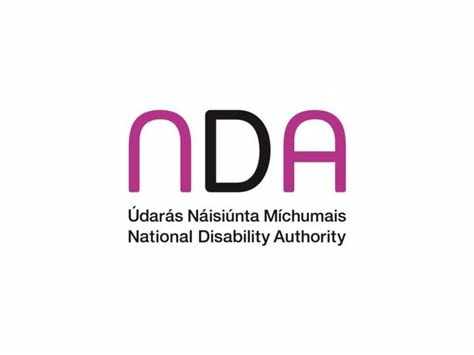 |
|
The Department of Children, Equality, Disability, Integration and Youth (DCEDIY) are leading the development of Ireland’s next National Disability Strategy. This will be the successor of the National Disability Inclusion Strategy, 2017-2022. It will be the main cross-Departmental strategy to progress implementation of the UN CRPD.
The National Disability Authority are running the public consultation to support the development of the strategy. There are several aspects of the consultation:
- 9 thematic online focus groups were held in November/early December- DFI engaged with a number of these focus groups.
- Written submissions aimed at disability organisations and Disabled Persons’ Organisations- deadline extended to 2nd February
- Video submissions
- National survey aimed at individuals
- In-person and virtual town hall style meetings- DFI attended an in-person town hall meeting with the NDA and DCEDIY on Thursday 7 December. Information on future town halls to follow.
The information on the consultation process, dates and deadlines are all on this NDA National Disability Strategy webpage.
DFI have fed back to DCEDIY, the NDA and Minister of State Anne Rabitte that these are unacceptably short time frames involved in the consultation, at a busy time of the year when organisations are stretched to respond to numerous consultations, including the Department of Social Protection’s Green Paper. We fed back that more time for consultation is required to ensure the best possible strategy, and to allow organisations the time to engage adequately with the people they support. We highlighted that the consultation did not comply with the NDA’s Participation Matters guidelines on consulting with disabled people. We are pleased that the deadline for written submissions has been extended from the original 12 January deadline to 2 February 2024, which will allow for better participation.
|
|
|
|
Poverty – latest research
|
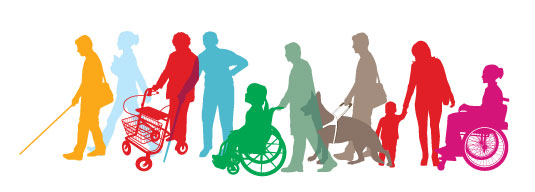 |
|
As we all know, disabled people, especially those unable to work, are much more likely to live in poverty and deprivation. In the past month, a number of relevant research and policy papers have been published.
ESRI Poverty Research Calls for more supports for people with disabilities
The ESRI published a paper, commissioned to inform the Roadmap for Social Inclusion monitoring process. It shows that Ireland ranked among the bottom five countries for the At Risk of Poverty or Social Exclusion (AROPE) for people with disabilities (24th position). It also highlights the need to go beyond national averages and particularly looking at specific groups, like disabled people. These are both concerns that we have been continually highlighting in our advocacy work, so it is good to see the ESRI echo them.
One of the report authors, Bertrand Maître, said: “While Ireland is performing relatively well on the indicators for older people and children, the much weaker results for people with disabilities and lone parents highlight the imperative for additional support for these groups.” You can read more here.
EAPN 2023 Poverty Report calls for Cost of Disability payment
The European Anti-Poverty Network (EAPN) Ireland, of which DFI is a member, has published its 2023 Poverty Watch report. Paul Ginell, the Director of EAPN says that “If the Government is to make progress toward its target of reducing consistent poverty to 2% or less by 2025, all relevant policy decisions, including the annual Budget process, must contribute toward this aim. We need to see a coordinated, long-term, whole of Government approach to truly address the underlying and structural causes of poverty, rather than further one-off, short-term measures.” The report highlights disability poverty, and reflects our ongoing call for a weekly Cost of Disability payment that adequately reflects the additional costs incurred by disabled people.
MESL Report highlights income adequacy in context of energy poverty
Finally the Vincentian Minimum Essential Standard of Living (MESL) Research Centre published a paper on ‘The cost of adequately heating a home’. The paper examines the cost of household energy over the recent period of high energy inflation. It concludes that the value of current energy-related income supports, and other social welfare payments has been eroded over the current inflationary period. The report makes policy recommendations to improve support for households experiencing energy poverty, including the crucial need to focus on income adequacy. Given the high levels of energy deprivation among those unable to work due to disability, this paper is highly relevant to our work.
|
|
|
|
DFI’s first three year advocacy plan – Making it Happen
|
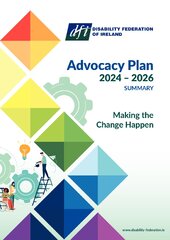 |
|
To guide our prioritisation of issues, resource allocation and improve effectiveness our first three-year Advocacy Plan provides a framework on where, why, what, and how we do our advocacy work.
The plan relates to the advocacy areas we can plan for, but allowance is also made for those issues that are unknown. We will continue to be flexible and agile in response to emerging concerns.
The United Nations Convention on the Rights of Persons with Disabilities (UN CRPD) commits Ireland to promote, protect and ensure the full and equal enjoyment of all human rights by all disabled persons. And yet, in Ireland, disabled people are significantly poorer than the general population, are much less likely to be in paid employment, and have worse health outcomes including having much higher levels of depression. Closing that gap is at the core of the Disability Federation of Ireland’s work, and advocacy is one of our primary tools for achieving this.
Our advocacy spans numerous policy areas, health operations and strategy and the community including representation to local authorities. DFI continues to play a critical role, as a way for Government Departments, Government officials, statutory bodies such as the Health Service Executive and elected representatives to liaise with a wide range of organisations more efficiently.
Our Advocacy Plan Summary Document has the following sections:
1. Introduction
2. Areas in which we do our advocacy
3. How we choose what to focus on
4. What we will work on: Our current priorities
5. Monitoring, evaluating and adjusting the plan
6. References
The full version of DFI’s three-year Advocacy Plan is available on request. Email us.
|
|
|
|
|
|
Health Update
|
|
The Neuro-Mapping Project update
|
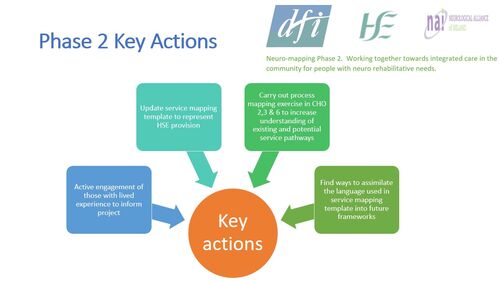 |
|
In April 2023, the report and outputs of the first phase of the neuro-mapping project were published. Whilst the findings of this work acknowledged the key role that voluntary organisations play in providing community-based services to people with a neurological condition across Ireland, it noted the need to harness opportunities to enable further integration between statutory and voluntary community-based services, to optimize access.
Phase Two will seek to further understand the current service and support pathways that occur between existing and developing statutory and voluntary community-services for people with neuro-rehabilitative needs in CHO 2, 3 and 6. The information obtained will inform the work of the Community Workstream of the Neuro-Rehabilitation Strategy which had its first meeting in November 2023.
The key actions to deliver are detailed below:
- Updating the Service Mapping Template (developed in Phase One) so that it will encompass statutory service provision.
- Carry out deep engagement with people with neurological conditions living in the community (CHO 2,3,6) to understand the challenges they
face in accessing services in the community that support their neuro-rehabilitative needs.
- Use process mapping techniques to get a greater understanding of existing service pathways (CHO 2,3,6) with input from all those who provide services in the community that support the neuro rehabilitative needs of those people living in the community.
- Find ways to assimilate the language used in the service mapping template into future frameworks for consistency and ease of signposting and planning.
For more on the Neuro-Mapping Project check out the new dedicated landing page on the DFI website here.
|
|
|
|
|
|
|
Participants needed for survey on accessing healthcare
|
 |
|
We are participating in an EU study which involves interviewing people with disabilities about their experience in accessing healthcare, including cancer screening, diagnoses and treatment.
This study is being coordinated by the European Disability Forum and is funded by the European Commission.
If you are interested in participating in the study or finding out more, please email Marie Lynch. The interviews will take place in January 2024 and will be carried out virtually.
|
|
|
|
Member Organisation Representatives gathering in DFI
|
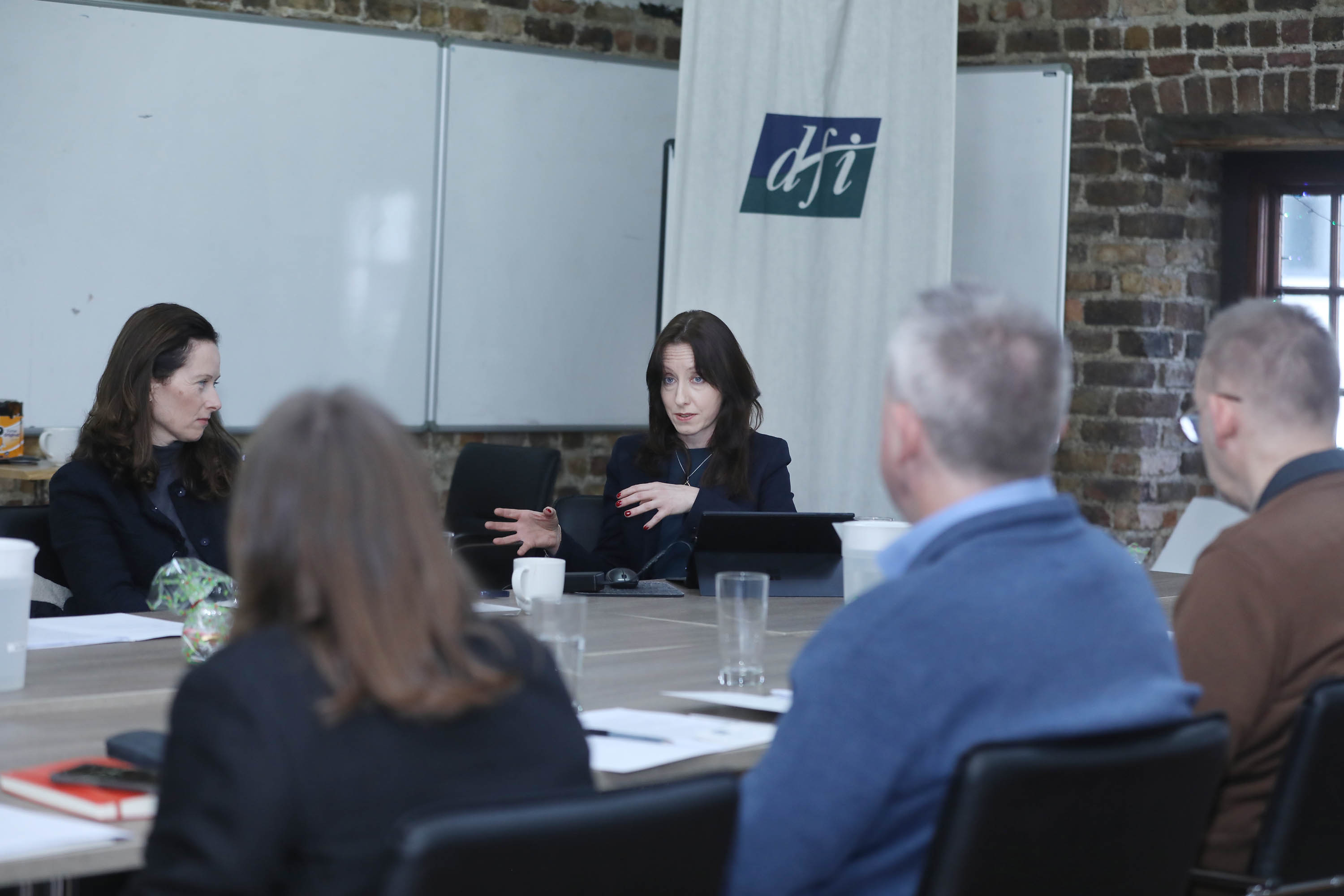 |
|
DFI represents its member organisations on over 30 National Health and other Statutory Committees. On Tuesday 12 December we whosted a Health Reps gathering in our offices in Dublin.
The event offered us an opportunity to discuss the various representative roles and to take feedback from our representatives. It was also an opportunity for us to say thank you in person for the work that they do.
John Dolan, our CEO, and Emer Begley, our Director of Advocacy and Inclusion were present for the gathering alongside Cathy McGrath, Project Manager.
A follow on in-person meeting will be held in Q1 os 2024 and we will be in touch about that early in the new year.
|
|
|
|
|
|
|
FreedomTech
|
|
What does Assistive Technology mean to you?
|
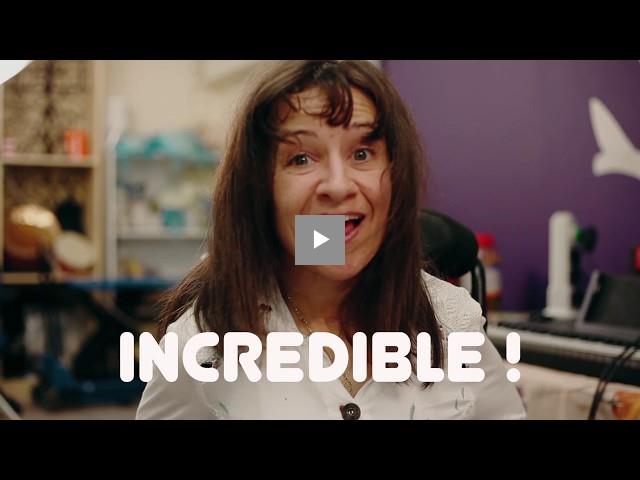 |
|
What does Assistive Technolgy mean to you? That was the question posed by Enable Ireland to some of their service users and the responses really give you a sense of how important it is. Take a few minutes to watch and listen.
|
|
|
|
|
|
|
An Eye on Europe
|
|
South Dublin County Council wins EU Access City Special Mention Award
|
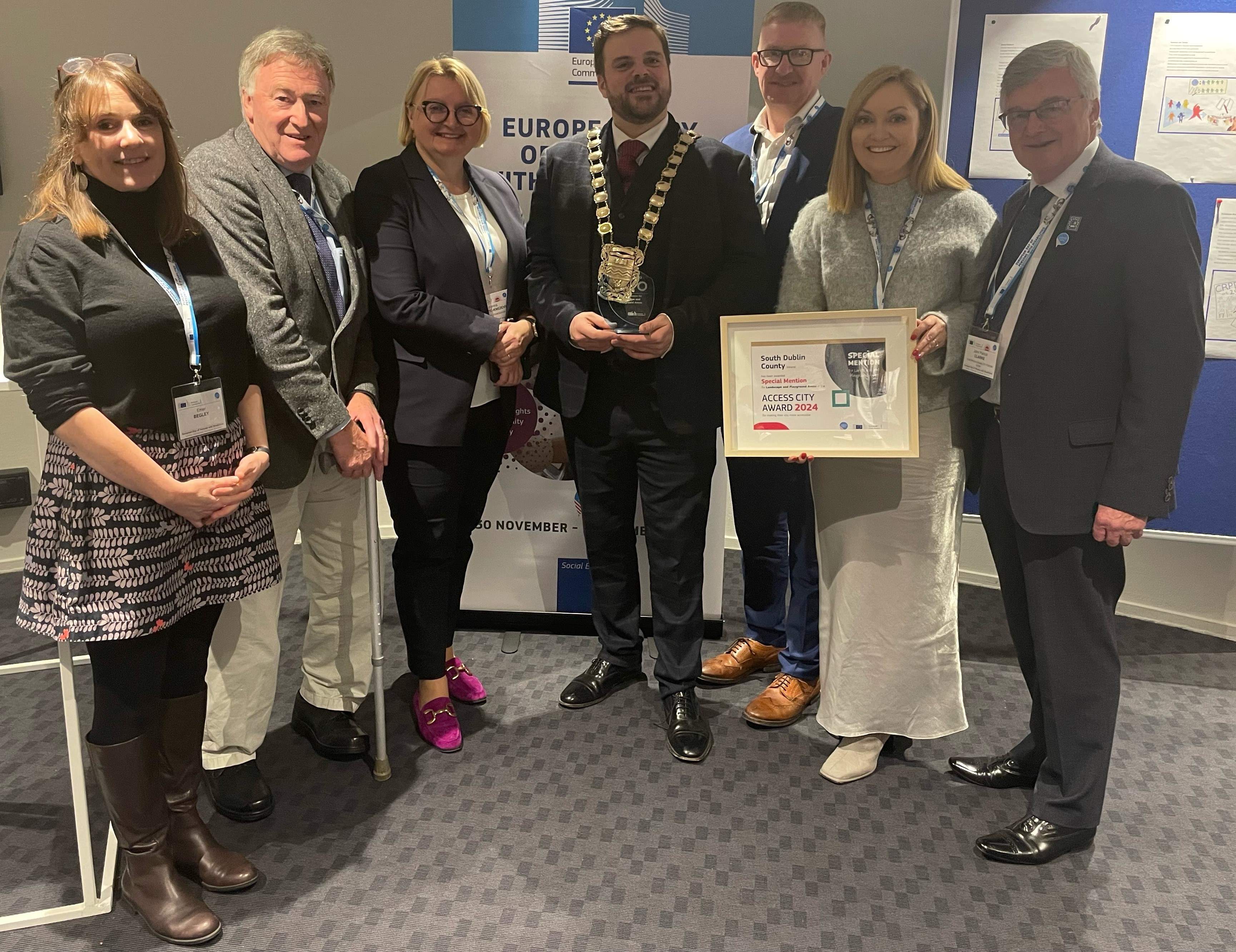 |
|
‘Play is a basic human right for all children but play alone is not enough. Children deserve to spend their childhoods in close contact with nature and to benefit from its many gifts. This can be especially important to children with Autism and other sensory issues. Realising this and bringing the values of inclusion, respect for the natural world and community participation into our projects has guided our decision making and delivered enormous benefits.”
The above was part of a speech made by the Mayor of South Dublin County Council, Alan Edge, as he accepted a Special Mention Award for landscape and play areas from the European Access City Award Scheme on Friday 1 December in Brussels.
Mayor Edge went on to pay tribute to the local community. He said, “To the citizens of our South Dublin, you are the primary reason for our success. Your engagement, feedback, and support have been instrumental in shaping policies and projects that prioritize accessibility. The conversations in local neighbourhoods, community centres, playgrounds and classrooms all around our County gave us the knowledge we needed to transform how we were meeting the needs of children growing up in our county.”
DFI’s CEO John Dolan and Dr Emer Begley (pictured with Mayor Edge) were present for the award ceremony in Brussels.
The Access City Awards were created by the European Commission to reward cities that have prioritised accessibility for persons with disabilities. The Access City Award programme is open to
- all EU cities of over 50 000 inhabitants
- urban areas composed of two or more towns with a combined population of over 50 000 inhabitants, if they are in EU countries with fewer than 2 cities with over 50,000 inhabitants.
We offer our congratulations to Mayor Edge and all involved in bringing this recognition home to Ireland.
|
|
|
|
The DFI Podcast
|
|
Episode Eight of The DFI Podcast offers a final analysis of Budget 2024
|
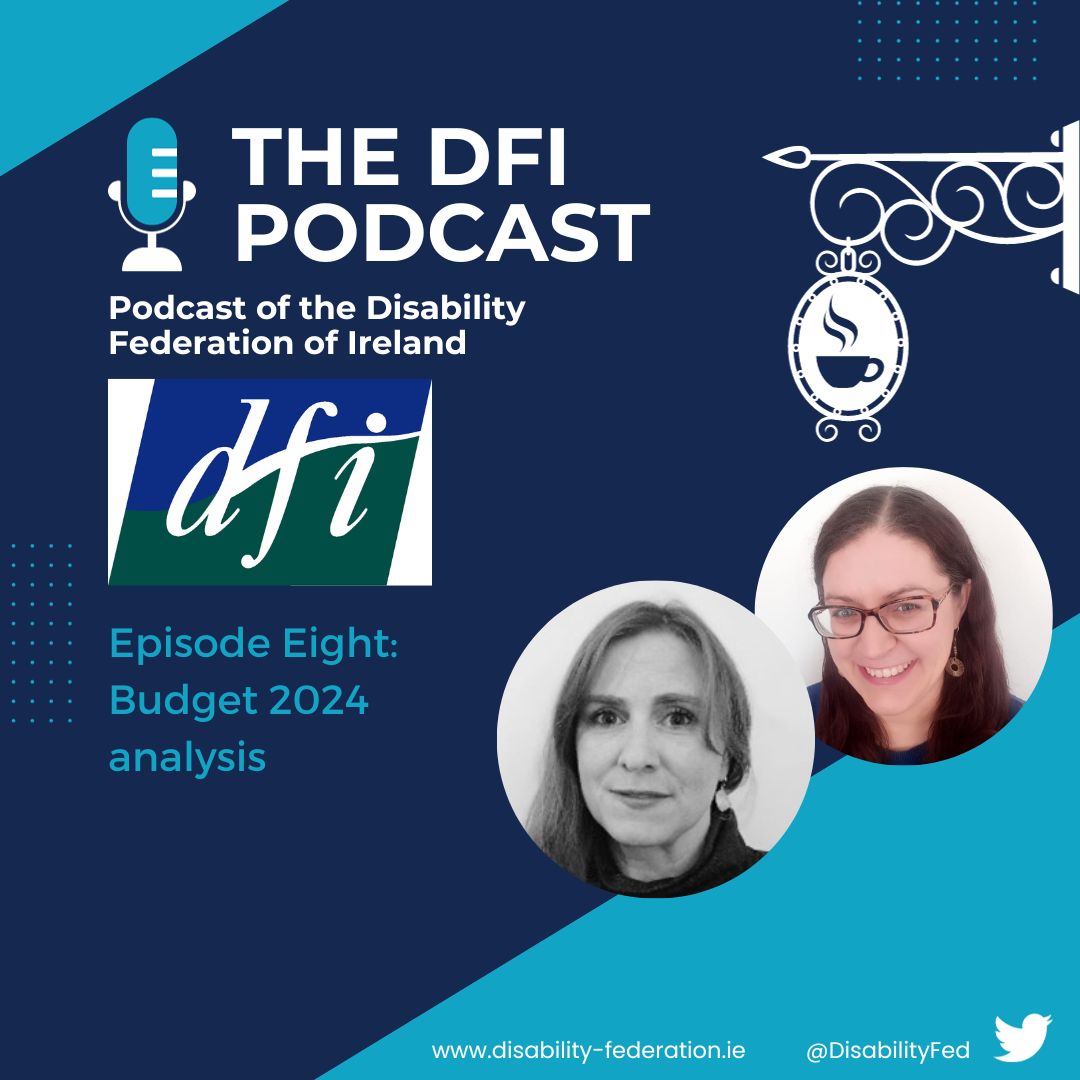 |
|
Episode Eight of the DFI Podcast features our full analysis of Budget 2024. Dr Emer Begley, our Director of Advocacy and Inclusion and Fleachta Phelan, Senior Policy Advocate offer their thoughts on what the Budget meant for people with disabilities and for the disability sector.
Click here to listen to Episode Eight.
You can find all previous episodes of The DFI Podcast on Spotify and on our website, where you can also subscribe to future episodes.
|
|
|
|
|
|
|
For more on all of the content featured in our newsletter see www.disability-federation.ie.
If you have been sent this newsletter by a colleague please click here to subscribe directly to receive your own copy of future issues.
|
|
|
|
|
|
Copyright © 2023 Disability Federation of Ireland, All rights reserved.
Disability Federation of Ireland (DFI) is the national support organisation for voluntary disability organisations in Ireland who provide services to people with disabilities and disabling conditions.
Disability Federation of Ireland, Fumbally Court, Fumbally Lane, Dublin 8. Telephone: 01 4547978, Email: info@disability-federation.ie, Web: www.disability-federation.ie
Disability Federation of Ireland, is a company limited by guarantee not having share capital, registered in Dublin, Ireland with offices at Fumbally Court, Fumablly Lane, Dublin 8. Registration Number 140948, CHY No 6177
Click here to unsubscribe or to change your Subscription Preferences.
|



|
|
|
|
|





























